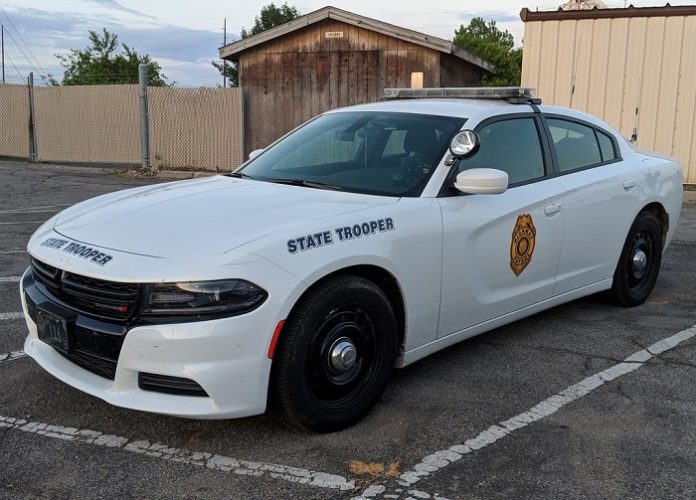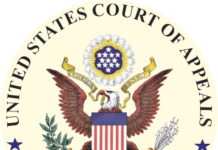(Updated to include more details from lawsuit with edits throughout)
Two former Highway Patrol officers who were forced out last summer have gone to federal court contending that they were retaliated against for helping female employees defend themselves against sexual harassment and gender discrimination.
Former Majs. James Harrington and Joshua Kellerman filed a lawsuit in federal court Friday against the Highway Patrol as well as Superintendent Herman Jones and Assistant Superintendent Jason De Vore as individuals.
They accused Jones and De Vore of creating and fostering a hostile work environment of sexual harassment and gender discrimination.
Harrington and Kellerman charged that their civil rights were violated for helping seven anonymous women, who according to the lawsuit faced unwanted sexual advances from Jones. The women are identified in the lawsuit only by letters of the alphabet.
The lawsuit contends that from April 2019 to July 2020, Harrington and Kellerman received complaints from female employees about sexual harassment and gender discrimination.
The lawsuit argues that federal civil rights law protected them as they discussed the allegations with the Highway Patrol’s director of human resources, the Department of Administration and even three unnamed Kansas legislators, among others.
Harrington and Kellerman, the lawsuit said, “opposed the unlawful discrimination
and/or harassment by directly reporting the unlawful actions to the KHP director of human
resources,” the lawsuit said.
They also say their First Amendment rights were violated because their were punished for discussing the “illegal activities of Col. Jones, Lt. Col. De Vore, and other KHP employees with others.”
The lawsuit also accuses the governor’s chief of staff, Will Lawrence, of refusing to pay Harrington’s accrued sick leave unless the former officer dropped a complaint filed with the Equal Employment Opportunity Commission.
Lawrence told Harrington in a phone call on Oct. 8 that he had accommodated other former KHP employees to allow them to obtain retirement benefits.
“Lawrence told Harrington that if he had been involved in the timing of Harrington’s
employment ending, he would have accommodated him as well,” the suit states.
“However, Mr. Lawrence told Harrington that his EEOC Charge was problematic because
he had caused additional problems within the KHP agency and he would not accommodate
him because he had filed the charge.”
The suit says that Lawrence indicated he would approve the pay out of Harrington’s accrued sick leave only if Harrington dismissed the EEOC complaint and didn’t pursue discrimination claims against the state.
Last summer, Gov. Laura Kelly’s administration released summaries of two investigations – one done by a private law firm and another by the Department of Administration – into allegations of sexual harassment against Jones.
The summaries said the complaints generally alleged the superintendent “greeted employees by slapping their backs, shaking their hands, patting their shoulders, hugging, standing close to the employee, and sometimes making awkward comments that were not of a sexual nature.”
“The employees did not allege that the physical contact or comments were of a sexual nature,” the summary said.
“Col. Jones was interviewed and indicated that he did not know the physical nature of the greetings made the employees uncomfortable and would avoid such contact in the future.”
At the time the results of the investigation were revealed last summer, the governor backed Jones’ appointment to lead the Highway Patrol.
“I believed when I appointed him, that Col. Jones was the right man for the job and my belief has been reaffirmed. He has my full support,” Kelly said last summer.
Sam Coleman, the governor’s communications director, didn’t respond to an email seeking comment on the lawsuit. The Highway Patrol also didn’t return a message left Friday night.
The lawsuit claims that the investigation by the Department of Administration “detailed many of the same occurrences of sexual harassment and discrimination that are alleged within this complaint.”
A summary of the department’s findings reported that “‘due to the extremely strong likelihood of bias against Col. Jones’ by the female employees making the complaints, it was difficult to wholly substantiate the allegations,” the lawsuit said.
The summary, the lawsuit said, identified Harrington and Kellerman as urging the female KHP employees to come forward and make the sexual harassment and discrimination complaints.
One person, labeled as “Employee B,” said “she was inappropriately physically touched by Jones in De Vore’s presence,” according to the lawsuit.
“Employee B stated that she told Col. Jones that his touching of her was inappropriate, to which he responded by touching her again and telling her, ‘There, I take it back,” the lawsuit alleges.
Harrington told Employee B to contact the KHP director of human resources to discuss and report the incident. Harrington was not Employee B’s supervisor.
In another instance, Jones was accused of referring to liquid soap as resembling semen in comments he made to Harrington in a restroom at the Highway Patrol.
He added, that “hadn’t seen that stuff in a while.”
Another person, “Employee G,” met with Harrington to “report Col. Jones had continued to send Instant Messages that were of a graphic sexual nature and were offensive.”
Meanwhile, “Employee H” told Harrington that Jones “made an inappropriate sexual comment, accompanied with sexual body gestures, to female KHP employees at the Kansas Highway Patrol Academy in Salina,” the lawsuit said.
Harrington, who did not supervise Employee H, told the employee to report Jones’ actions and comments to the Highway Patrol’s director of human resources.
Last Monday, legislative auditors concluded that the Highway Patrol adhered to state law when it fired the two officers last summer.
The auditors said Harrington and Kellerman were unclassified employees, meaning they were “at will” employees who could be dismissed for nearly any reason.
The audit focused only on whether the agency followed requirements related to the personnel actions.
It did not evaluate the reasons for the dismissals or the intent behind them.
“We were tasked with simply looking at whether the Highway Patrol followed applicable state law and regulations,” Legislative Post Auditor Justin Stowe told lawmakers.
“We had actually found that they had done that,” he said.
















